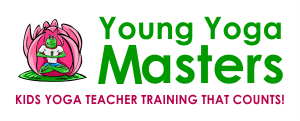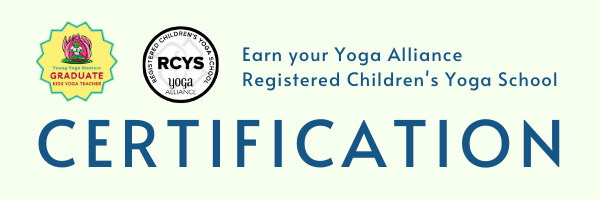Chinese Mothers, Parenthood, Gurus and Disciples
The Wall St. Journal article by a Chinese Mother who proudly proclaims Chinese parenting as superior has been searing across screens leaving a trail of comments (over 7,000 at last check). Amy Chua writes that in her culture kids don’t get freedom because they don’t know what’s best for them, their parents do! She feels the free style of many western parents is lazy. She also says her Western friends try to rehabilitate her at dinner parties. Even Oprah interviewed her and, I think, wanted her to see the error of her ways.
Amy Chua is “happy to be the one hated” if it means her children will learn to excel.
Last week on Parenthood (the TV show), two parents forbid their 16 year old daughter from dating a 19 year old boy. When she got caught sneaking off to see him (surprise!) not only did her parents ground her they took the door off her bedroom until she regained her parents trust.
How Strict is the Right Amount of Strict?
In light of all this parental pandemonium, my last blog post about giving kids freedom seems a little oversimplified. Since teachers are stand-in parents while the parents are away, both teachers and parents must consider: How strict is too strict? How loose is too loose?
I often go easy on the kids I can admit it. If all the children ask for a particular yoga song, I usually fit it into my class plan if it wasn’t there to begin with. If they’re doing yoga then I’m happy.
I also let kids learn for themselves even when I know they are about to make a mistake. Experience is a great teacher.
Cultural Bias: Western Yoga vs. Yoga from India
But how many of my discipline choices are from my culture? Most of my choices reflect the western style of yoga. Am I actually making choices about my discipline style? I may think I am choosing but in fact I’m just choosing what makes me comfortable. Here’s the big question that all teachers and parents ask: Am I doing what is best for the kids?
Most adults know yoga comes from India but many kids don’t know it. In India Yoga was taught in a Guru/Disciple relationship. The word disciple and the word discipline share the same roots. The teacher’s job was to build discipline in the child. There are many stories about the strictness of Indian Gurus.
The Old Definition of Discipline is Obsolete
The word discipline derives from the Latin word “discere” which means to learn. But it now means “punishment” in Webster’s Dictionary. Discipline as Instruction is listed as obsolete. But this definition: “training that corrects, molds, or perfects the mental faculties or moral character” shows that it is the trainer who decides what is correct.
Yoga for children in the west reflects the value of developing imagination and creativity in a child, not being a disciple. Discipline is a secondary result. In my experience, western children aren’t used to discipline, they are used to creativity. So how do children learn discipline?
While the dust settles from the article from the Chinese mom I can see more clearly that discipline is very complex. The daughter on the TV show Parenthood, well, she ran away from home at the end of the episode. Too much discipline can be a punishment for children but sometimes those handing out the punishment learn the lessons.


I think the more you allow and let them do their thing they may fail but they are learning, learn a lesson from their experiences.
I can also see that there may be disadvantages. Recently, I was sitting with a group of parents and we were all lamenting how hard it is to lure our kids away from the siren call of computers and video games.
As for me I let my children explore and learn on their own be independent. The more you allow and let them do their thing they may fail but they are learning, learn a lesson from their experiences. Me, I am here to guide them. If they are on their downfall I am here to give them advice and teach them how to be more independent rather than be very protective it wont help them but loosen their self confidence.
for me i used to make a rules in the house make them independent for some reason,thank you so much for sharing this to us.
I let my children explore and learn on their own be independent. The more you allow and let them do their thing they may fail but they are learning. | 😛
I haven’t raised my boys with the strict rules that Amy Chua applied to her own daughters. I can see the advantages to my approach how it has helped to make the boys creative, articulate, independent-thinkers. But I can also see that there may be disadvantages.
I don’t think a good parenting or being a good parents is making your child a prisoner. As for me I let my children explore and learn on their own be independent. The more you allow and let them do their thing they may fail but they are learning, learn a lesson from their experiences. Me, I am here to guide them. If they are on their downfall I am here to give them advice and teach them how to be more independent rather than be very protective it wont help them but loosen their self confidence. Let them know the reality, open their mind but always be there to guide them and support them.
I agree with Reluctant Runner. I have several adult Asian friends who are constantly looking for something outside of themselves for fulfillment, leading very productive lives while making tons of money, and are NOT happy. I believe it is our job as parents to understand who our kids are and guide them. No two children are alike. In most cases, that is more challenging than telling them what to do and how to act.
Thanks for leaving a comment Emma.
No two children are alike! Yoga is so great for what you say because it encourages the adults and children to understand themselves. Knowing yourself is a great guide for finding true happiness.
It’s interesting what an intense reaction that “western” parents have had to the “Tiger Mother”. I think that speaks to our own insecurities about our parenting style. I haven’t raised my boys with the strict rules that Amy Chua applied to her own daughers. I can see the advantages to my approach — how it has helped to make the boys creative, articulate, independent-thinkers. But I can also see that there may be disadvantages. Recently, I was sitting with a group of parents and we were all lamenting how hard it is to lure our kids away from the siren call of computers and video games.
I firmly believe there’s no one correct parenting style. Helping our kids become happy, productive, good citizens of this earth is an art, not a science. To be good parents, we need to be constantly perfecting that art, learning from other parents and our own mistakes. Amy Chua’s own book is a memoir of how she eventually had to adapt her style when her then 13-year old daughter rebelled at her strict rules. That same daughter has defended her, saying that she is a good mom. So maybe there’s something we can learn from her parenting approach and our own response to it.
Great post, Kath, thanks!!
My friend who works at the bookstore says the Tiger Mother books are flying off the shelf. It has touched something in people.
And I agree that its an art not a science. Science is best when it supports art!